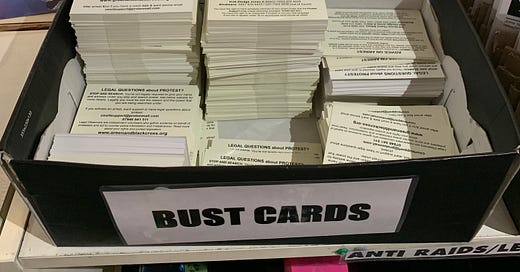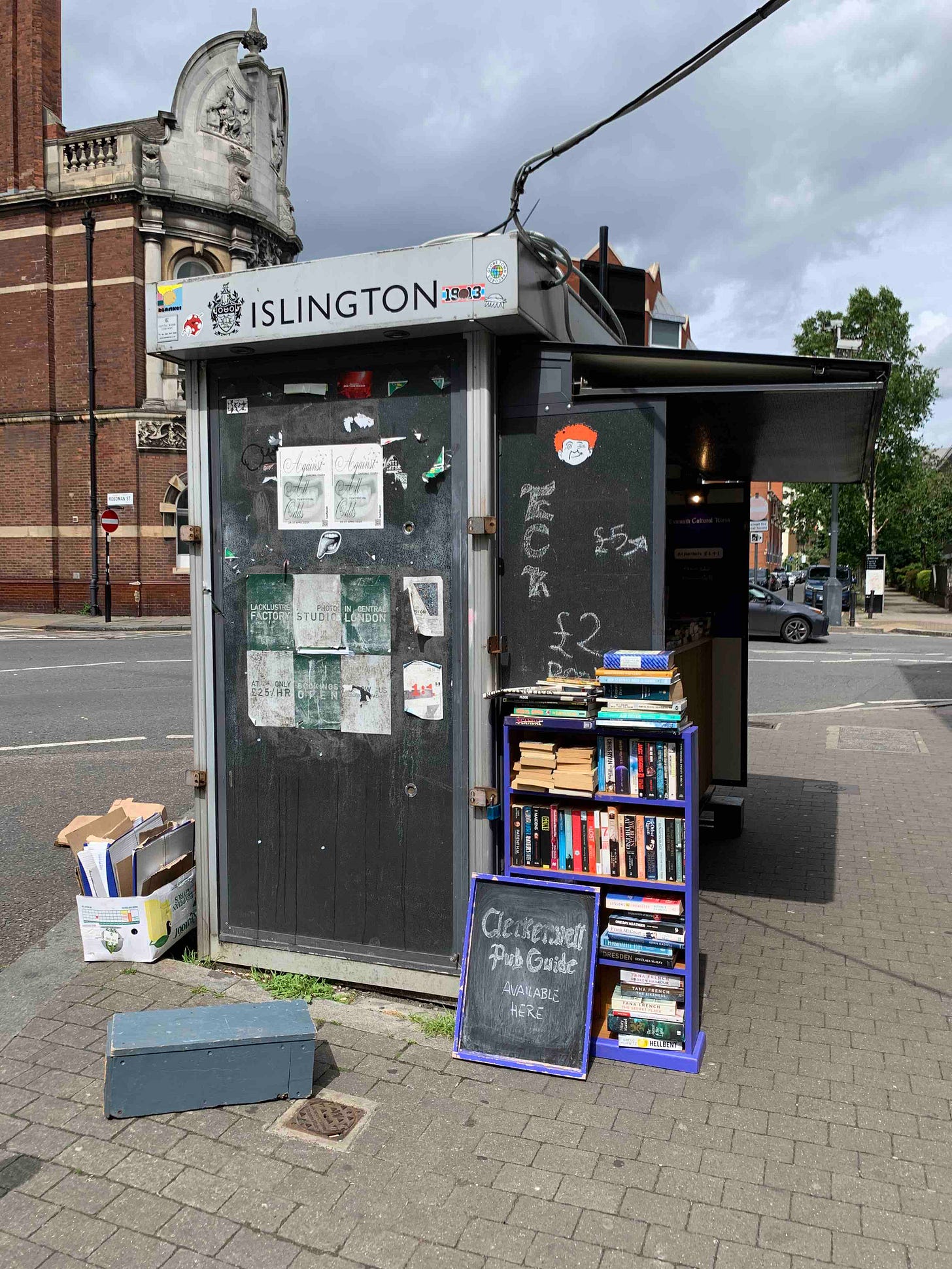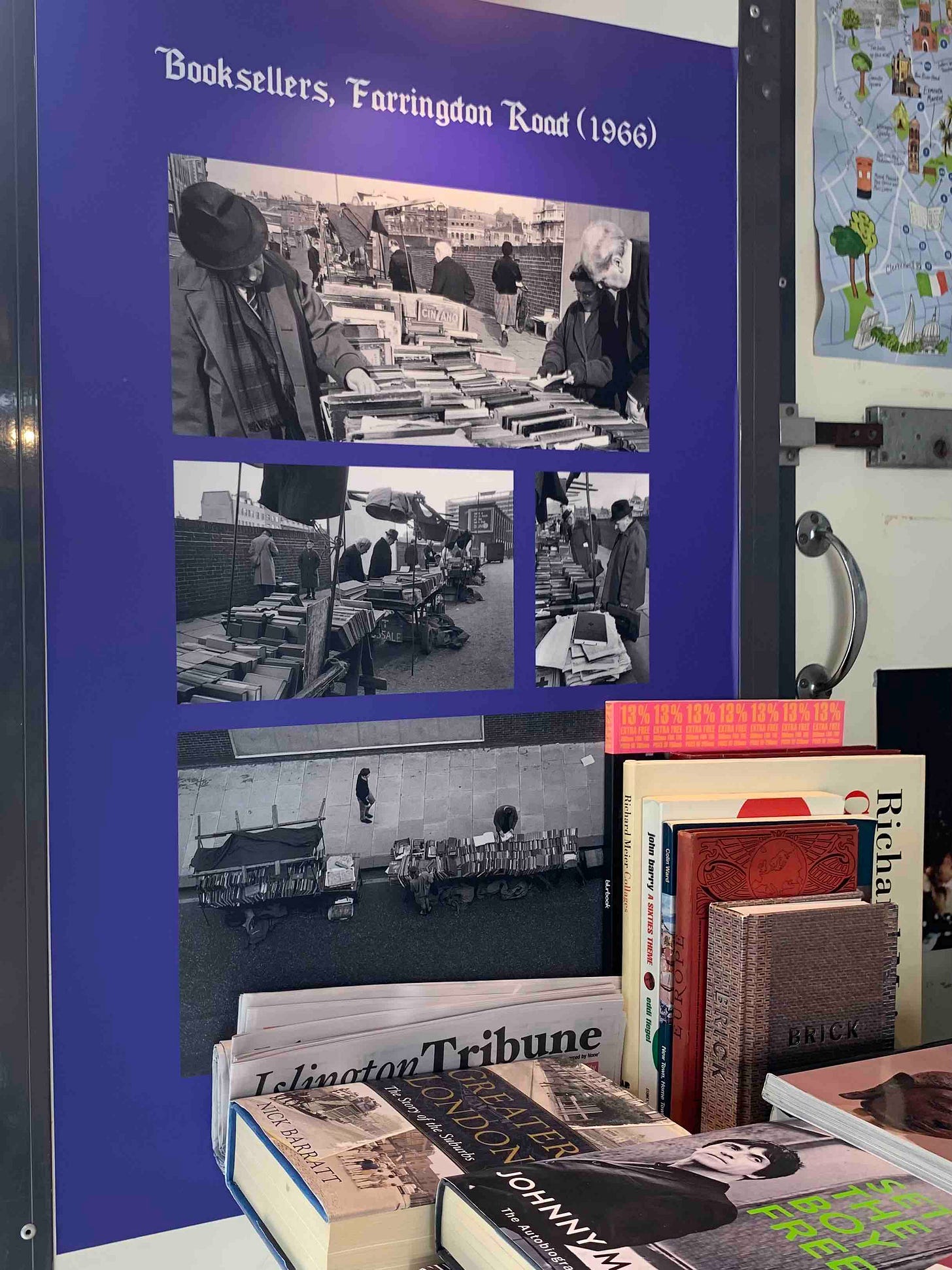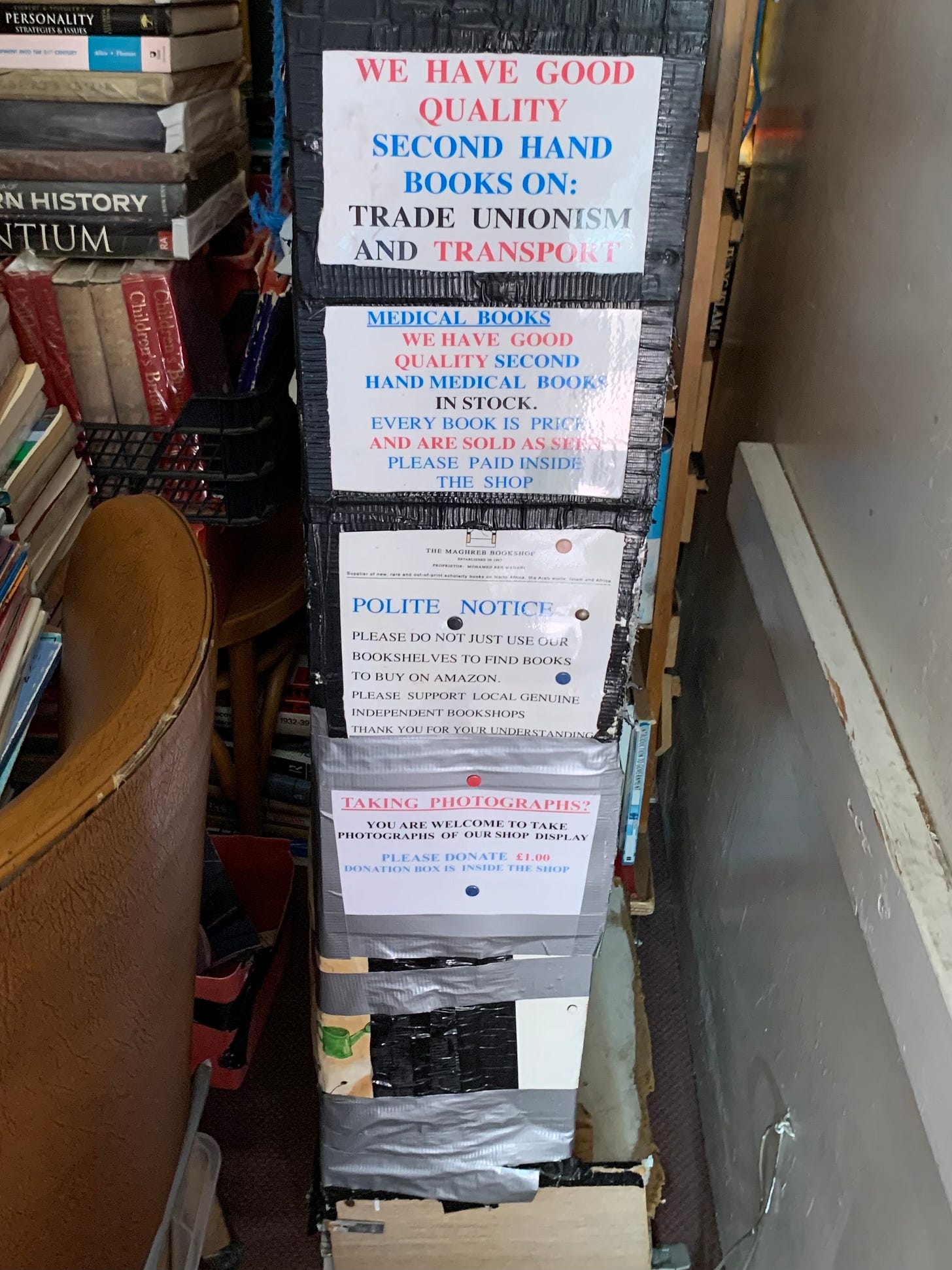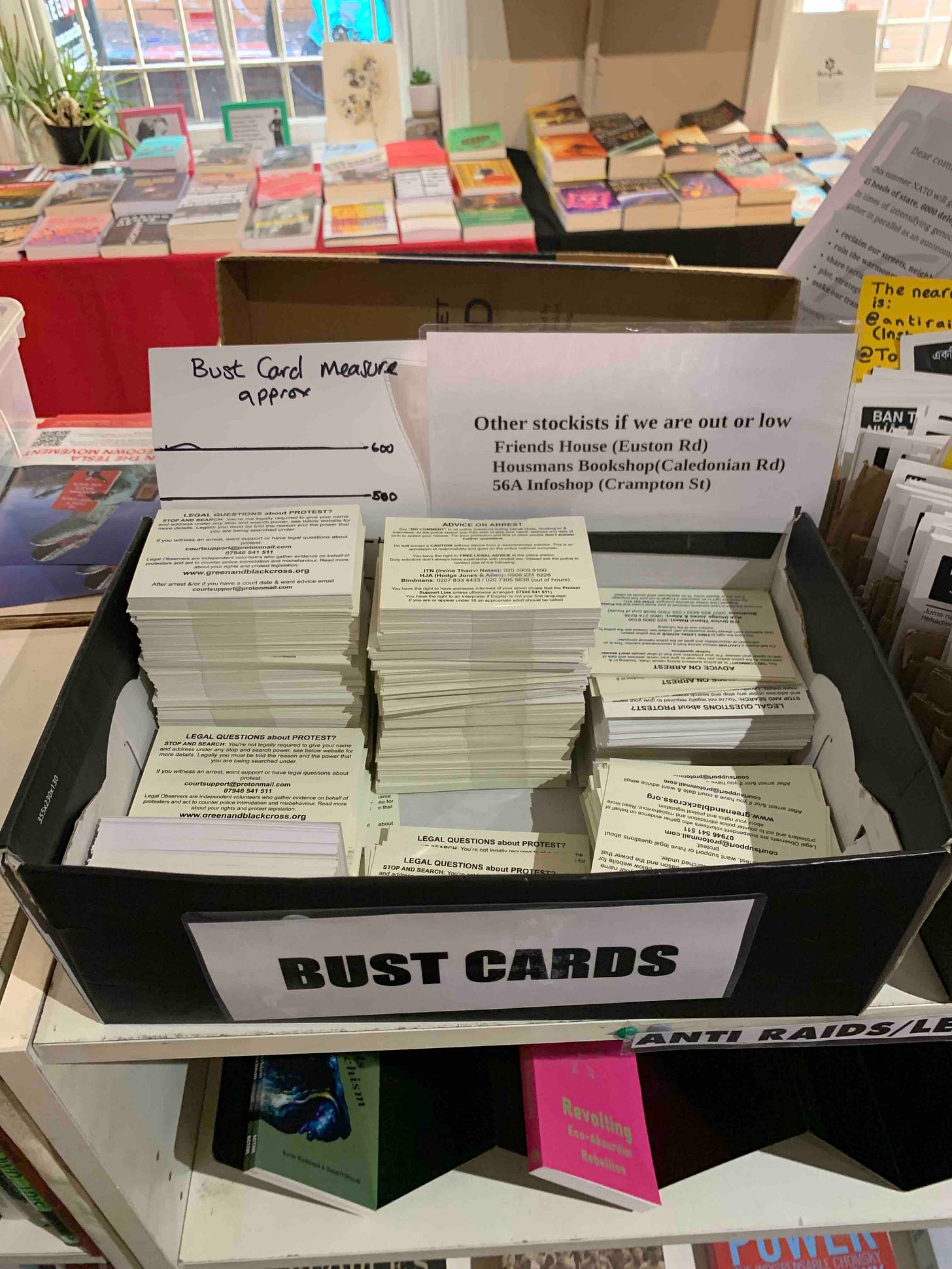Part 1: Writing about more bookshops than Time Out
I wrote about 31 bookshops last year – here’s 10 more. Another 10 to come in part two
Hello and welcome to Wooden City, a newsletter about London.
If you haven’t come here via @caffs_not_cafes, I'm a writer called Isaac Rangaswami and this is my Substack.
Every other week I publish an article about locally important places such as pubs, shops, restaurants and public spaces.
Wooden City is funded by its readers and paying subscribers get much more. This includes access to maps, full articles and an archive of material covering over 250 places so far.
Since I write about places in this city, Time Out London is probably my main competitor. The magazine produces some coverage I like, but it bothers me when it calls Slough “the most depressing place in Britain” or Barking and Dagenham “officially the city’s most miserable place to live”.
I assumed this kind of area-bashing died out 20 years ago, but it persists because of the way Time Out and other online publications make money. Londoners used to have to buy the magazine, but after Time Out closed its ad-funded print version it became even more reliant on things like ad impressions, search engine optimisation and social media. With this model, emotive material makes commercial sense.
I also try to earn money through attention-grabbing headlines, so I can’t judge Time Out and its writers, or even Rightmove’s public relations people, who commission the research upon which the “depressing” and “miserable” articles are based. But I do wonder what kind of city writing London misses out on because magazines know readers are hardwired to find negativity irresistible.
I much prefer Time Out’s bookshop lists. They encourage people to support local businesses, including those in outer London boroughs that the same publication says are unhappy places to live. One of the first things I published on Wooden City was a guide to 31 second-hand booksellers; today’s newsletter is a follow-up to that and part one of my attempt to exceed the 45 bookshops Time Out has covered this year.
As with my previous list, each entry focuses on things like atmosphere, book selection and local function. These follow-up pieces also feature a mix of new and second-hand bookshops, including places I haven’t seen covered by major publications.
Today’s instalment focuses on central and east London, while the next one has another 10 in east, west, north and south. When I publish part two I will have officially written about more booksellers than my competitor, which I’ll mark with an updated Google map with all 51 entries. I came across some of these shops by reading Time Out.
Exmouth Cultural Kiosk
Speaking to Miguel, the enterprising Spaniard who runs Exmouth Cultural Kiosk in Clerkenwell, reminded me that central London isn’t exclusively chains. It also reminded me that to start a distinctive business in zone 1 today, you have to fight tooth and nail.
This open-fronted hut is owned by Islington Council. Miguel told me its previous tenant was a retired postal worker known as Jimmy Juice, who sold orange and carrot juice. “He was a very old-school man,” Miguel said. When he saw Jimmy had vacated the Exmouth Market kiosk, he pitched the council an idea: a book stall, like the ones that once lined Turnmill Street near Farringdon Station.
The council took a while to respond, and when Miguel bumped into Jimmy, he said the only way to escape the bureaucracy loop was to follow up in person. When Miguel eventually got the keys, he had to call the kiosk’s manufacturer to actually get inside. He’s had it for over a year now and any time he threatens to make a profit, Miguel invests the money back into stock.
Like BOOKS in Peckham, obscure stuff is mixed in with crowd-pleasers. Prices are also often shockingly low. I recently bought a coffee table book of Beryl Cook paintings from the brilliant £2 section. Another section has lots of beautiful paperback editions that all cost £5, with a £1 donation to Great Ormond Street Hospital Children’s Charity factored in. “Jimmy Juice used to fundraise for them,” Miguel told me. “He asked for change as a donation from people who asked him for directions, in the pre-Google Maps days.”
Exmouth Market, London EC1R 4QP
The Maghreb Review & Bookshop
The elderly proprietor of Maghreb Review & Bookshop doesn’t allow you to take photos of his books. He’ll ask you to delete them if you do, but not in an unfriendly way. This is just policy: to stop people from noting down titles and buying them online instead. Hopefully you won’t make the same mistake I did.
This owner told me his bookshop has been around since the 1980s, which makes it a little younger than the quarterly journal it's connected with. It specialises in academic books on the same topics – the Maghreb, the Middle East, Africa and Islamic Studies – along with things like trade unionism and transport. He told me he’s sometimes open only by appointment, but tends to operate between 12.30 - 5.30pm from Monday to Saturday. It’s worth calling ahead if you’re planning a visit.
45 Burton St, London WC1H 9AL
Freedom Press Bookshop
I’m only aware of a few other places like Freedom Press in London. One is Housmans in Kings Cross, a radical bookshop I’ve written about before. Like Freedom, Housmans owns its freehold, so hopefully neither store is going anywhere anytime soon. Another is 56a Infoshop in Walworth, which I love and I’ve decided to leave off this list because it functions primarily as a social centre and I’d like to devote a whole separate newsletter to it.
The short story about Freedom is that it has been down this Whitechapel alley since 1968, but the roots of the anarchist publishing house that founded it go much deeper than that. During a recent visit I saw books on topics such as housing, veganism, animal rights and prison abolition, as well as basically everything Noam Chomsky and David Graeber have ever written. There were also patches and zines for sale, along with bust cards and anti-raids leaflets in 32 languages. I bought a copy of the 15th edition of the Squatters Handbook.
84b Whitechapel High St, London E1 7QX

